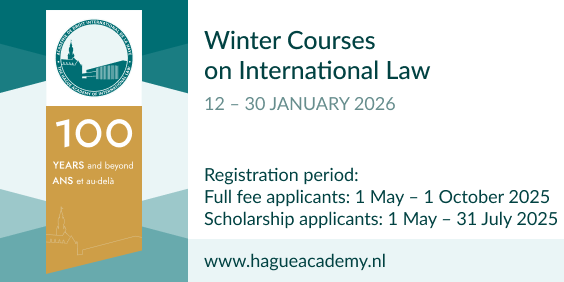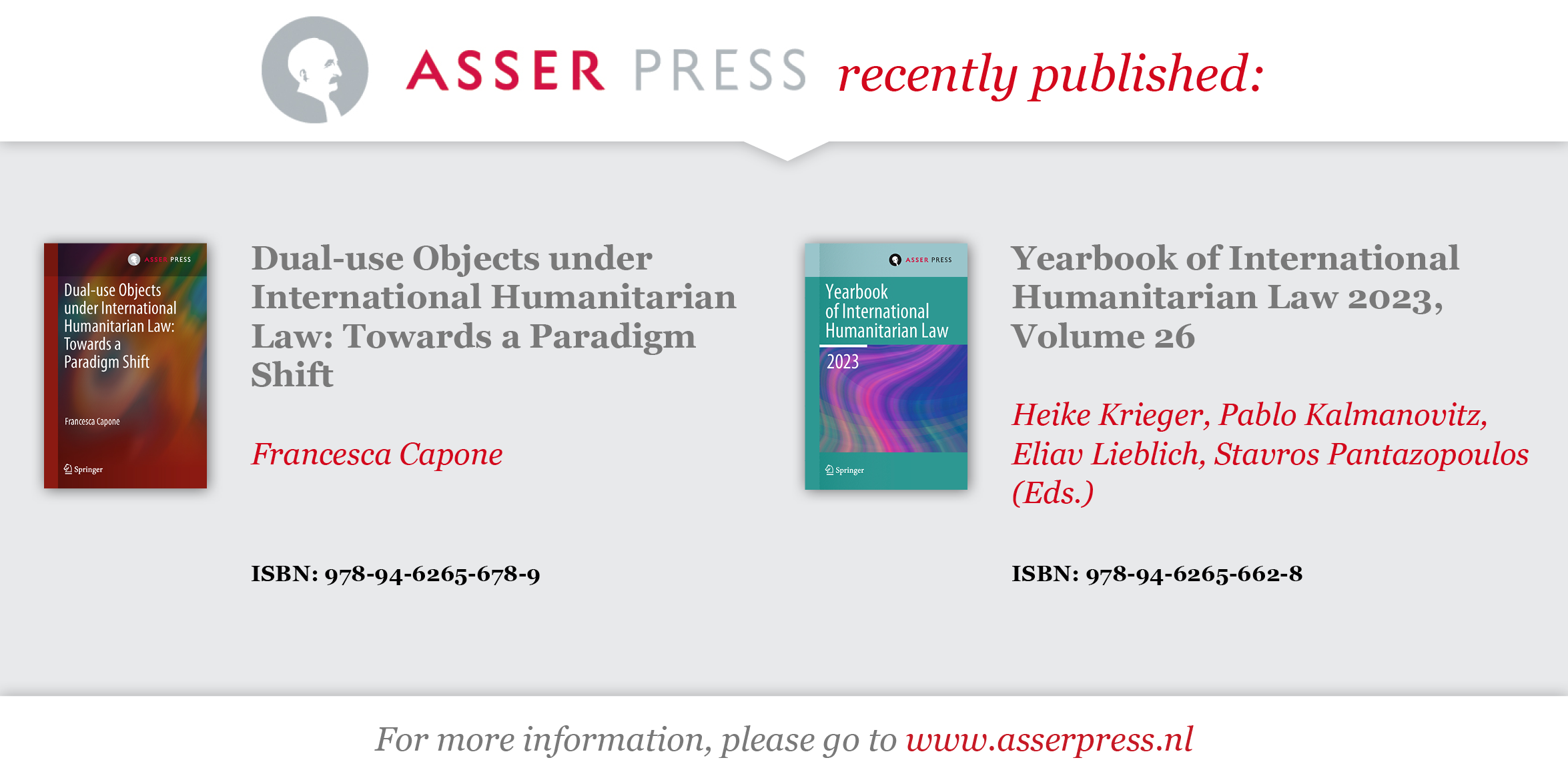Editor: Ana Salinas (Universidad de Málaga)
1. Message of the President
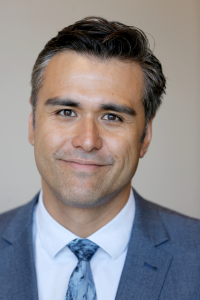
Dear ESIL members,
Summer vacations are nearly upon us, and we hope it will be a period conducive for reflection and some enjoyable time with your loved ones. In my previous Newsletters, I have noted a growing sense of what the Catania Research Forum called a ‘permacrisis’ that seems to define our recent era. We find ourselves amidst a cascade of challenges from geopolitical conflicts to the accelerating imperatives of climate change and the dizzying pace of technological transformation. My younger self was convinced that these are only cyclical oscillations, believing each generation faces its own unique turblences. However, I am increasingly convinced that each such moment brings specific, unique challenges that should not be overlooked.
Amidst such moments, both within and beyond the field of international law, it is easy for us to feel collective fatigue; a weariness from constantly navigating the cracks and fissures in our international order. The arrival of summer offers a timely opportunity to gain critical and intellectual distance from these pressing issues. This breather, however short, can also help us to shift our perspective towards the theme of our upcoming ESIL Annual Conference in Berlin, Reconstructing International Law. This overarching concept of ‘reconstruction’ is far more than a mere title to attract participants: it is a call to action for our community. To speak of reconstruction is an invitation to move beyond simply observing, narrating, and resisting crisis. It urges us to engage in the vital, meticulous work of rebuilding.
To rebuild is to make deliberate choices. It means acknowledging our roles as situated actors with potentially limited claims to universality, all while possessing the courage of our ideals and convictions to engage with others. It demands that we tear down disciplinary and intra-disciplinary barriers, moving beyond questioning and into concrete action. This process also involves living with our doubts and fears, while balancing them with the immense potential of collective action.
For some, international law is a problematic, flawed discipline; for others, it is a beacon of rationality in an international order often structured by political power. Whatever our personal convictions, my sense is that as communities of scholars, we can engage with one another to question how international law can and ought to be reinforced, repurposed, or perhaps even reimagined to address the specific, pressing challenges of today and tomorrow.
The challenges we face remain substantial; but perhaps we can see them as inspiring. We have the opportunity to grapple with the transnational issues constantly wrought by new technological and scientific innovations. We also bear the duty and perhaps the responsibility to address legal and ethical frameworks to mitigate new and pressing harms caused by both humankind and natural forces. Vulnerability, fear, and suffering continue to mark the existence of so many. Without for a second suggesting that international law is itself the sole solution, perhaps we may be inspired in our scholarship to imagine how it can be pressed into service as an instrument of redress.
The sessions, panels, and informal discussions in Berlin will be more than academic debates; they can serve as the intellectual crucibles where we begin to lay the groundwork for this reconstruction. This work demands intellectual courage, an openness to challenging long-held assumptions, and engagement in robust dialogue. But in dialogue we must remain. The professional solidarity that I have often championed is not merely a virtue of civility; it is the essential precondition for this kind of creative and critical work.
In this, my final editorial as ESIL President, I want to leave you with a question: what if our community of international legal scholars could move beyond a reflex of constant crisis management and embrace a new, more proactive intellectual project—one of reconstruction?
We are uniquely positioned to participate actively, and even to lead, global intellectual projects. Through our diverse perspectives, collective expertise, and perhaps most importantly, our shared commitment to understanding international law, we have something significant to contribute as scholars and as international lawyers. Let us embrace this call for reconstruction with aplomb in Berlin.
Yours faithfully,
Gleider Hernández
ESIL President
2. Guest Editorial by Serena Forlati: The ICJ Provisional Measures in South Africa v. Israel: An Exercise in Futility?

A little over one year ago, the International Court of Justice issued the last of its three orders on provisional measures in South Africa v. Israel.[1] The case is brought under Article IX of the Genocide Convention and the orders indicate, among other things, that Israel “shall, … in relation to Palestinians in Gaza, take all measures within its power to prevent the commission of” genocidal acts[2] and “ensure … that its military does not commit” them;[3] shall “[t]ake all necessary and effective measures to ensure… the unhindered provision at scale by all concerned of urgently needed basic services and humanitarian assistance”, including by opening the border crossings;[4] and “[i]mmediately halt its military offensive, and any other action in the Rafah Governorate, which may inflict on the Palestinian group in Gaza conditions of life that could bring about its physical destruction in whole or in part”.[5]
Any formal assessment as to whether these measures were infringed, and as regards the allegations of breach of the Genocide Convention by Israel are a matter for the merits.[6] Nonetheless, already in March 2024 it was difficult to deny that the terrible situation in Gaza “would most probably not exist if the Order of 26 January 2024 had been fully implemented.”[7] Today, the humanitarian situation is beyond words; Israeli hostages are still in the hands of Hamas; a political solution is nowhere in sight and a new open war between Israel and Iran further complicates the picture. Rather than a reflection on Article 94 UN Charter and other mechanisms facilitating implementation of ICJ rulings, the words of caution by Judge Xue in Allegations of Genocide on provisional measures in a context of an armed conflict come to mind,[8] and a more fundamental question arises as to whether the exercise of the judicial function in such circumstances is actually futile. Arguably, the answer is no.
The legal and political framework of the Gaza crisis is extremely complex and Western States, that strongly condemning Russia’s invasion of Ukraine, have so far been much shyer in seeking respect by Israel of its obligations under international law, including those stemming from the Orders. Even academic discussion is difficult,[9] not least because any allegation of breach of the Convention against Genocide by Israel is particularly charged.[10] In this context an impartial – if only prima facie – assessment of the situation in Gaza, coupled with identification of clear and specific obligations for Israel do play an important, if only indirect, role. States in all their ramifications – including public universities and research institutions – can rely on these rulings when assessing their own obligations of due diligence as regards prevention and cessation of mass atrocities. Moreover, the orders, provide firmer ground for action by civil society, including all those in Israel who do not agree with the course undertaken by their government.
Should the ideal of an international rule of law somehow survive the physical and metaphorical graveyard that is Gaza,[11] it will also be thanks to the exercise by the ICJ of its power to adopt provisional measures under Article 41 of the Statute.
[1] ICJ, Application of the Convention on the Prevention and Punishment of the Crime of Genocide in the Gaza Strip (South Africa v. Israel), Orders of 26 January, 28 March and 24 May 2024.
[2] Order of 26 January 2024, para. 86(1). On the binding nature of provisional measures see ibid., para. 83.
[3] Ibid., para. 86(2).
[4] Order of 28 March 2024, para. 51(2)(a). See also the Order of 24 May, para. 57(2)(b).
[5] Ibid., para. 57(2)(a).
[6] Order of 26 January 2024, para. 62.
[7] South Africa v. Israel, Separate Opinion of Judge Nolte, appended to the Order of 28 March, para. 4.
[8] Allegations of Genocide (Ukraine v. The Russian Federation), ICJ Reports 2022, p. 241, para. 6: “[I]n the context of an armed conflict, one may wonder how those provisional measures can be meaningfully and effectively implemented by only one party to the conflict. When the situation on the ground requires urgent and serious negotiations of the Parties to the conflict for a speedy settlement, the impact of this Order remains to be seen”.
[9] See Sué González Hauck, Isabel Lischewski, “Closing Channels”, Völkerrechtsblog, 26 July 2024. The difficulty of fostering a serious academic debate is certainly not limited to Germany.
[10] See only the opening statement of Israel’s Deputy Agent, Becker, at the hearing of 12 January 2024, paras 1-11.
[11] Itamar Mann, “In the Graveyard of International Law”, Verfassungsblog, 16 May 2025.
3. Meet an ESIL member – Heike Krieger
 Meet Heike Krieger, Professor of Public International Law at the Freie Universität Berlin and member of the local organising team of the 2025 ESIL Annual Conference in Berlin.
Meet Heike Krieger, Professor of Public International Law at the Freie Universität Berlin and member of the local organising team of the 2025 ESIL Annual Conference in Berlin.
4. What’s Going On?

20th ESIL Annual Conference in Berlin – Reconstructing International Law
The 20th Annual Conference is approaching fast – it will take place from 11 to 13 September 2025 at Freie Universität Berlin. Please visit www.esil2025.de for the full conference programme and the registration platform. Registrations keep flying in – so make sure to register as soon as possible so that you will not miss out on the Berlin conference. All places for the conference dinner have already “sold out” and soon the conference will also be fully booked.
We thank the ESIL community for the extraordinary interest in coming to Berlin for debating, reflecting and thinking collectively about the reconstruction of international law.
Helmut Aust & Heike Krieger
 2026 ESIL Research Forum – Sustainable International Law. Reconciling Stability and Change
2026 ESIL Research Forum – Sustainable International Law. Reconciling Stability and Change
The 2026 ESIL Research Forum, set to take place on 9–10 April 2026 in Kraków, will be hosted by the Centre for Advanced Sustainability Studies and the Jagiellonian University.
This unique forum is designed to foster rich discussions on “Sustainable International Law. Reconciling Stability and Change”, and it will delve deep into how international law can maintain legal certainty while effectively regulating the social, economic, and environmental transformations of our volatile world.
Visit https://esil.cass.science/ for more information on the 2026 ESIL Research Forum and to consult the Call for Papers (deadline to apply: 30 September 2025 (12.00 CEST).
5. ESIL Lectures
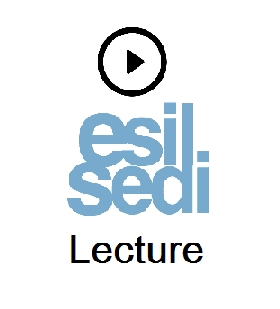
The ESIL Lecture Series hosts broadcasts of presentations on international law topics held at partner institutions, allowing the presentation to reach a wider audience of ESIL members and non-members alike. ESIL lectures are available on the ESIL website and on the ESIL YouTube Channel.
To propose an ESIL lecture, please read the ESIL Conference Series Guidelines.
6. ESIL Proceedings (former ESIL Paper Series)
The ESIL Proceedings (former ESIL Paper Series) features papers presented at ESIL events (Annual Conferences, Research Fora, and Interest Group events). Publication in the ESIL Paper Series enables authors to disseminate their work widely and reach broader audiences without the usual delays involved in more traditional means of publication. It does not prevent the subsequent publication of papers in academic journals or edited collections.
The current Series editors are ESIL Board members Federica Paddeu and Patryk Labuda. For more information, please contact [email protected].
ESIL Papers are included in the EUI CADMUS Research Repository. All the papers presented at previous events from 2021 to 2023 are available here.
7. ESIL Book Series
ESIL Book Series publishes high-quality volumes on various international law themes. The good news is that the ESIL Board has broadened the scope of the ESIL Book Series, beyond the themes of ESIL Annual Conferences and ESIL joint events. Proposals based on IG events and other ESIL events are welcome. Other proposals from ESIL members are also within the scope of the Book Series. Potential editors are welcome to get in touch with the General Editors with proposals for edited volumes to shape the future of ESIL scholarly publication.
The General Editors are Christian J. Tams and Machiko Kanetake.
8. ESIL Reflections
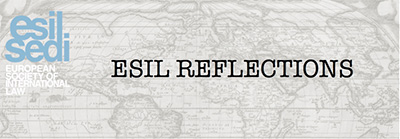
ESIL Reflections offer up-to-date reflections on current issues in international law. The Reflections cover a wide range of topics relating to current developments in international law and practice as well as theoretical reflections in a way that is relatively accessible to non-experts. The aim is to foster discussion between ESIL members and international law scholars and practitioners more generally – in Europe, but also beyond. ESIL Reflections are published on this website and distributed freely to ESIL members.
The editors are Patrycja Grzebyk (editor-in-chief), Lucas Lixinski, Alina Miron, Anne Saab and Peter-Tobias Stoll.
ESIL Members who have an interest in contributing are encouraged to do so. Please contact Patrycja Grzebyk if you would like to contribute.
Latest publications:
9. News from Interest Groups
 ESIL Interest Groups are a vital part of the Society’s success and activities. A list of the groups is available on the ESIL website.
ESIL Interest Groups are a vital part of the Society’s success and activities. A list of the groups is available on the ESIL website.
The IGs are organising pre-conference workshops on 10 and 11 September before the ESIL 2025 Annual Conference in Berlin. All the published programmes are available here.

